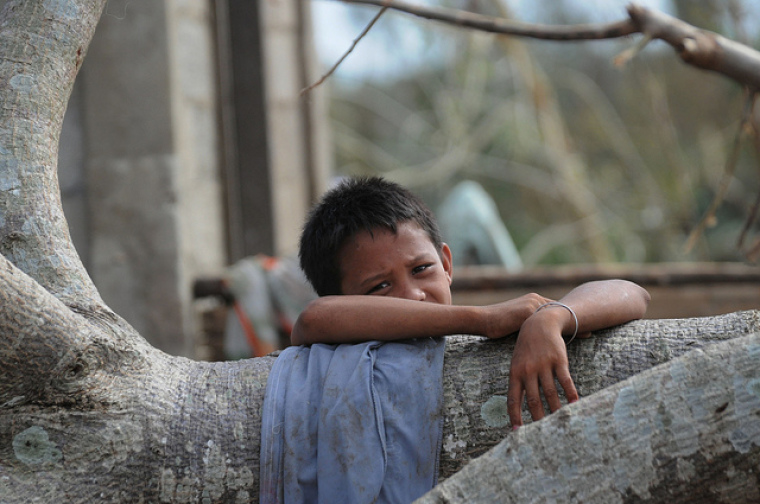

The head of the Norwegian Refugee Council has called on world leaders to start preparing for the migration fallout from climate change.
Jan Egeland based his statements on the organisation's data, which revealed natural disasters displace "three to 10 times more people than all conflicts and war in the world combined".
The Council, which runs the Internal Displacement Monitoring Centre in Geneva, has also collected data from 2013. During that year, 22 million people were displaced by disasters, with Typhoon Haiyan in the Philippines at the centre of that year's havoc. The total number is three times more than the 2013 toll from conflicts.
Compared to the early 1970s, the displacement figure has doubled, as about 10 million people were forced from their home environments during that time period. Mr Egeland said to conference attendees: "Many more people in a growing population live more exposed to more extreme weather".
Mr Egeland's comments were reaffirmed by Chaloka Beyani, the United Nations' special rapporteur on the human rights of internally displaced persons, who agreed that planning for climate change migrants needs to begin immediately. Mr Beyani was part of a UN panel of climate experts, and said on its behalf: "For the future we are looking more to planned relocations for people who are prone to frequent hazards".
Mr Beyani explained the rationale for the rapid implementation of preparation planning:
"We don't have to wait until an island sinks in maybe 50 years time and an entire population vanishes ... There will have to be a planned movement and relocation".
The panel also announced a 95 per cent probability that global warming is primarily caused by human activities—especially the burning of fossil fuels.
The conference occurred in the week before Pope Francis arrives in Asia, where he is expected to prioritise climate change in his addresses to the Sri Lankan and Filipino communities. Experts have identified Sri Lanka as one of the Asian countries that will be affected by sea-level rises, while Pope Francis will visit Tacloban, where Typhoon Haiyan killed 6,300 people in the Philippines.